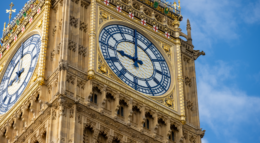
Iran is strolling back into the nuclear fold
Before Soviet communism collapsed in 1989, Kremlin watching – deciphering what was going on inside the Politburo – was the pre-eminent geopolitical art. Today's equivalent is Iran watching. As it begins to resume its nuclear program, Donald Forbes argues more questions than answers begin to emerge.
What the West knows about Iran's true nuclear status – a sticking point for the normalisation of relations with Tehran – seems to be as unclear as ever. There are differing assessments of the balance of power between the regime's radical and moderate wings. What is certain is that the word of the supreme leader, Ayatollah Ali Khameini, is final in all things.
What is also difficult to question is Iran's position as an aggressive state with a foothold in Latin America as well as deep influence in Iraq, Syria, Yemen and Lebanon. It has been this way since the mullahs took control 40 years ago and sought conflict with the American behemoth as one of the pillars of their popular legitimacy.
A rogue Iran under a ruthless theocratic government, armed with nuclear weapons and an international reach on a scale far more destructive than single acts of terrorism, is a geopolitical nightmare for the West and the Sunni Arab states. However, it is only one of several international dangers the US must juggle simultaneously. The watchword is management, not regime change.
President Biden is trying to lure Iran back into the limited nuclear anti-proliferation deal the mullahs reached with Barack Obama in 2015, but never signed, and from which President Trump withdrew in 2018 because of Iranian non-compliance. The US and its partners – the UK, France, Germany, Russia and China – have been negotiating with Iran in Vienna for several week over ways to revive the Obama deal and allow Biden to lift the sanctions Trump imposed. As the Iranians refused to meet the Americans face-to-face, the other members of the group are acting as go-betweens.
Despite the presence of the other five and given that Russia and China are friendly to Tehran, the essential argument is between the US and Iran with the Europeans trailing behind. Iran may be struggling under US sanctions, but it has approached the talks as if it had the upper hand. Since the mullahs know the Americans are desperate for a deal and that they have ways around sanctions, this is effectively true.
What is happening in Vienna is hard to pin down, but there have been hints that an agreement, initially projected to take months, is already within reach. If true, it would not be unreasonable to conclude that the US has again made concessions to an adversary it cannot trust to keep its promises. Thus, we can make note of another Iranian diplomatic win, due in part to Washington's re-assessment of its future role in the Middle East and its pre-occupation with the growing threat from China which recently treated Secretary of State Anthony Blinken with unprecedented public contempt. A capitulation to Iran in Vienna would be treated as a further sign of US weakness by Russia, China and North Korea.
Obama came to office determined to prevent the spread of nuclear weapons. Instead, he was obliged to sign his deal with the mullahs on their terms, providing Iran with a legal path to nuclear weapons by 2030 over strenuous objections from Israel and Saudi Arabia. Washington's idea in pivoting towards the threat from China's growing military strength was to woo Iran as a realpolitik ally, if not as a friend, by helping it to emerge as the de facto leading military power in the Middle East apart from Israel. Freed from the region's long-standing and often disastrous gravitational pull, the US could in future concentrate on its friends and enemies in Asia.
America would prefer to see a moderate, secular Iran which would act more like its traditional democratic allies but does not see this prospect in the near future. To this end, Obama ignored the 2009 Green Revolution which was the last serious challenge to the Iranian regime.
In a sense, the Vienna talks are a calculated charade. If agreement is reached, Biden will shower money on Iran and Iran will build nuclear weapons anyway while Washington turns a blind eye so long as the Democrats hold the presidency. No one seems to know with precision what stage of nuclear development has been reached. Israel, which Biden is ignoring, has pursued a policy of physical sabotage of Iranian installations, most recently at Natanz, and the assassination of Iranian nuclear scientists.
It estimates that Iran is a threshold state meaning that it is ready for actual production. However, former US director of Central Intelligence James Woolsey, quoting International Atomic Energy Agency reports, wrote that Iran may already have one or more untested nuclear missiles that it could have made from technology from Europe, Russia and China.
Whatever the case may be in the uncertain haze that is the Iranian state, the confirmed existence of an Iranian bomb is highly likely while the mullahs stay in power.

Donald is a retired journalist who wrote for the Agence France-Presse, Associated Press, and Reuters. He was a chief correspondent in Poland, Hungary and Yugoslavia. Donald now regularly writes for The Conservative Woman.












